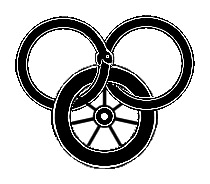
I began reading Robert Jordan’s Wheel of Time series of novels when I was in junior high school. They fell under the ‘epic fantasy’ subheading in the local library, but I think ‘exhaustive fantasy’ might have been a more appropriate heading. At the time, the series had just expanded to 5 books. At 600+ pages a book, it was by far the longest continuous story I’d ever to read. And of course it wasn’t yet finished.
Jordan continued adding a new book to the Wheel of Time every 2-3 years until 2006. The 11th book in the series came out only shortly before he passed away from a rare blood disease in late 2007. Happily for those of us who’d slogged through all eleven books, Jordan’s widow and editor arranged for another writer to complete the series, basing the final 3 books off of his notes. Thanks to their efforts and those of the new author Brandon Sanderson, book 14 will be released in early 2013, marking the end of a story whose first book came out in 1990!
Like many fantasy stories, the first book borrowed heavily from the archetypes and structure that were popularized by J.R.R. Tolkein’s Lord of the Rings. A small band of unlikely heroes sets off on a quest to save the world from an ancient evil against insurmountable odds. Happily though, Jordan then proceeds to subvert these standard expectations in the next book. As the different motivations and attitudes of the heroes are laid out, they begin to conflict, splintering off into a dizzying array of threads and subplots. The result is a sprawling epic whose pages lay out the trials not only of the five initial heroes, but of the dozens of characters they encounter along the way. Minor plot point in earlier books become the basis for important story lines that continue across half a dozen books. Epic (or exhaustive) really is the appropriate word for it.
By and large I like the books. They’ve provided many hours of enjoyable diversion. I recently finished reading through the first 11 books, cover-to-cover, for the second time, thanks to all the time I’ve spent commuting downtown on the train and subway.
That said, after rereading the books, I have found a few points that irritate me fairly seriously about them:
- Immature characters. Most of the significant characters are fun in one way or another. They have quirks, amusing habits, strange passions and so forth. This is important since nobody wants to spend hundreds of pages of development on a character who simply bores or annoys them. However, a large number of the characters display little emotional maturity, which causes them to seem more like caricatures than real people. Behaving with the same childish pique in situation after situation for example.
- Long-buildups without sufficient payoff. Most of the early books do a good job of directing their plot lines toward a central climax or confrontation. This works because the confrontations are largely satisfying. Important issues are resolved and the story moves forward. In the later books though, the buildups extend far longer, and the climaxes are shorter and often offer far less story development. This makes it harder and harder to justify all the intricate backstory that is leads up to them.
- Uneven pacing. The basic problem here is obvious – Jordan slows down the timeframe described as his books go along. This means that the further we go along, the less real action happens, and the more plotting and minutiae we are obliged to wade through. The end result is that a number of the later books simply aren’t very engaging.
- Male/Female characters. First, to give credit where it is due, Jordan doesn’t fall into the trap of leaving all the female characters in supporting/secondary roles. Strong women are the norm, not the exception. What he does do though is follow a pretty blunt ‘men are from Mars, women are from Venus’ framework. Women don’t understand men, and vice-versa. It’s not an uncommon approach, but Jordan is quite heavy-handed about it. Women are constantly grumbling about how dense the men are, and men about how inexplicably emotional the women are. Having interactions between befuddled men and bitchy women constantly just seems lazy and unimaginative after a while.
Still for all the complaints, I’m still reading after nearly 10k pages, and I plan to buy book 14 just as soon as it’s available. Hopefully, the Wheel of Time will see a worthy conclusion. I certainly couldn’t have imagined that I’d be still looking for an ending more than fifteen years after I began reading the story.
(Side-note: it’s funny how perspectives change. Some of the characters I used to find most sympathetic I now find quite insufferable. And vice versa. I’d much rather hear about Moiraine and Perrin than Mat and Egwene at this point…)
